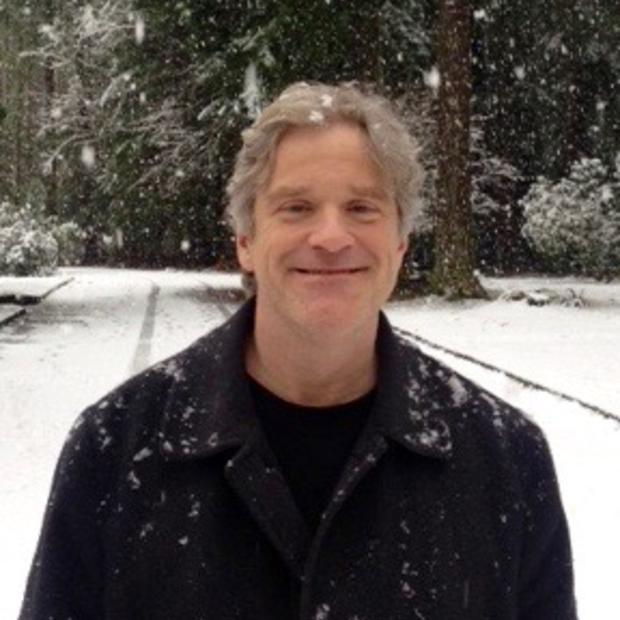Election day is paradoxically devoid of political news. So today's news shifts from political contests to the election process itself. As the Olympian's Brad Shannon writes, up to 21,000 voters may not have received their ballots because of a technical snafu at the state Department of Licensing. "About 14,800 voters updated their addresses online at the same time they were renewing driver licenses at the Department of Licensing, according to Katie Blinn, state elections co-director," Shannon writes. "But that information is in a form that cannot be migrated to the statewide voter database until next year. Another 5,900 people tried to update registrations without having previously registered to vote."
The good news is if a voter is officially registered but didn't receive a ballot, he or she can contact their county elections' office to request a provisional one. Vote early and often today.
When campaigns can't be scribbled about on election day (or at least reporters shouldn't impart new or inflammatory info) the mechanics of a campaign are fair game. As Noah Haglund writes in this morning's Everett Herald, the race for Snohomish County executive has been a dinero bonanza. "The contest between incumbent Aaron Reardon, a Democrat, and state Rep. Mike Hope, a Republican, has consumed nearly $525,000," Haglund writes. "Only one other local race in Washington this year, for a seat on the King County Council, has run up bigger numbers."
This is not a record for Snohomish County, Haglund reports. "Although a lot of money was raised and spent in the race, it didn't set a record for a local county contest. Hundreds of thousands of dollars more were spent eight years ago when the county executive job became open after term limits prevented Bob Drewel from running again and Reardon made his first run for the position." The article is an instructive primer on the hemorrhaging of political money and what special interests are supporting which candidate. One takeaway: Both Reardon and Hope contracted with local and national campaign firms. Shouldn't Northwest political candidates commit to contracting only with local hired guns? Something like, "I hate to work with these cynical operators, but at least they're our cynical operators, damn it."
One legacy of the George W. Bush era is a renewed emphasis on civil liberties. Yes, Guantanamo Bay is still open. Yes, because the Foreign Intelligence Surveillance Act was abridged, a data-mining computer at the NSA is probably analyzing your every email. We still have control over certain local things like, say, high school newspapers. As the Seattle Times' Brian Rosenthal writes, "Seattle Public Schools officials on Monday withdrew a proposal to give principals oversight over school newspapers after students and activists raised concerns that it would harm free speech."
One of the more interesting features of this story is the willingness of Interim Superintendent Susan Enfield to change her mind, and fast. As Rosenthal reports, "In May, she reversed her decision to fire Ingraham High School principal Martin Floe after opposition from parents." Enfield is a former journalism teacher, a role that clearly informed Monday's decision.
Occupy Seattle continues to have a ripple effect, even if its waves are more symbolic than tanglble. As the Seattlepi.com's Vanessa Ho writes, "Following the lead of the populist Occupy movement, the Seattle City Council will consider a resolution that calls for the city to bank only with 'responsible financial institutions' and scrutinize businesses that have gotten city tax breaks." The resolution begs the question: For all these years has the city been banking with irresponsible financial institutions? Ho quotes resolution sponsor Nick Licata: "It says we recognize Occupy Seattle, we recognize their message that the country is really hurting, because of practices of many of the large banks. They want an ally. We should be an ally with them." An ally with benefits, Occupiers hope.
Lastly, why don't presidential candidates pay more attention to the West? They campaign here, they raise oodles of money here, but regional issues are rarely discussed. As Ed Quillen writes in High Country News, "What if the Western Republican Leadership Conference sponsored a debate in the West for Republican presidential candidates, with audience members all from the West, and they never got around to talking about Western issues?" It happened, as Quillen observed, but it mustn't happen again.
Link Summary
The Olympian, "Glitch denies ballots to as many as 21,000 voters"
Everett Herald, "Race between Reardon, Hope has been a money magnet"
Seattle Times "Schools back off on policing student papers"
Seattlepi.com, "Should Seattle bank with 'responsible' institutions? Council considers it"
High Country News, "Presidential candidates are missing the Western issues"


